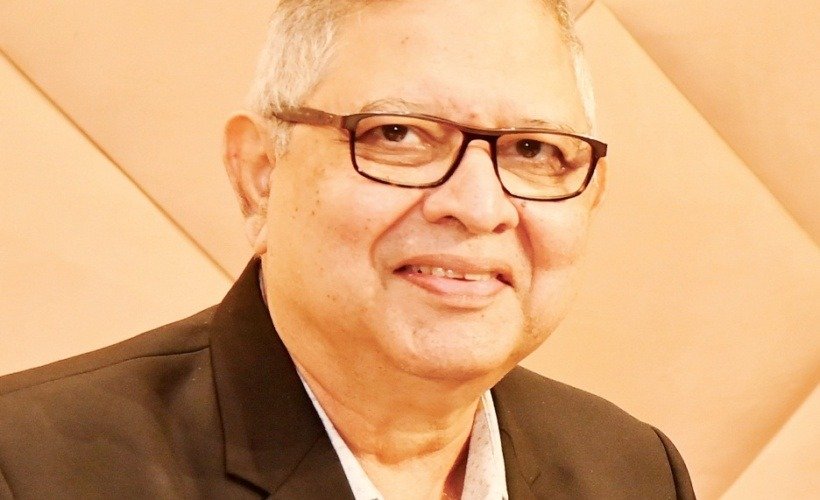
The writer, Ralph de Sousa, elaborates on the problems faced by the industry in Goa and their expectations from the new Government
Goa went to polls on 14th February 2022 which was the 13th Assembly Election, commemorating 60 years celebration of liberation from the colonial rule. The results of the elections are eagerly awaited as there will be a new government in place soon.
Agriculture:
The agriculture sector has been put to the test since the introduction of the Agriculture Tenancy Act, 1964. Successive governments have failed to effectively implement the Act throughout the state. The numerous litigations over the land ownership disputes pending in the lower courts for decades have only hampered the chances of increasing agricultural output of Goa. The Governments have faced this predicament and are unsuccessful to help the small farmers to benefit from the legislations. The farmers too, have not played their role to make the primary sector robust and prosperous, but have used the paddy fields to construct their dwelling houses and inspite of the law; a sizeable quantum of agriculture land has been sold by the farmers for the purpose of construction.
Mining
The Mining sector is the other core industry of Goa which was largely contributing to its GDP and made the state economically strong, marching towards prosperity since mid 1940s. The huge surge in the mining output and exports that was witnessed from 2010 to 2012, led to the intervention of many environmentalists and NGOs putting a halt to the mining operations through the Supreme Court. Again, the failure of the governments to come up with a legislative solution to restart mining has led to the total paralysis of the mining activities in the state.
The shutdown of mining and the recession faced by the hospitality sector for last three years has reduced the state revenues to a trickle and the burden has now fallen on the shoulders of the manufacturing sector.
Manufacturing:
Although Goa has been maintaining a good level of per capita GDP as compared to other Indian states, the manufacturing sector which is the largest contributor to Goa’s prosperity is neglected by most of the Governments.
The economy of the state has to shoulder an arduous history, especially with various legislations being introduced for reasons such as appeasement of the electorate, ignorance of the legislators in gauging the utility of reforms while replicating the same from other neighbouring states, and unstable Governments for long period pre-2002 era.
From this secondary sector, the manufacturing industry has been the prime contributor to the economy. However, the industry has not received the support from the Government to solve many a issues that plague this sector, which include large industry as well as the MSME and startups.
It is the responsibility of the state government to provide the industry with high quality infrastructure which includes water, electricity, well defined and industry friendly, trouble-free industrial estates. Proper industrial policies and delivery is lacking, not only resulting in hardships to the present industrialists, but discouraging fresh investments from flowing in to Goa The multiplicity of licenses required for the erection and operation of industrial projects are again a stumbling block coming in the way of the operations and expansions in the industrial sector.
Although Goa is a small state with a limited quantity of land masses, huge land parcels, which were earmarked for SEZ are locked in because of legal issues. The same have to be addressed at the earliest so that these lands can be allocated to prospective investors to locate their manufacturing activities in the state.
Some of the short-term issues expected for quick resolve are:
Ease of Doing Business (EODB): sluggish pace of decision making, difficulty in obtaining necessary approvals for projects to start and remain in operation is a major drawback of the Government. EODB should be the prime focus of the new Government.
Key Industry Appointments: Professionals and apolitical persons should be appointed to head Government Corporations. Their term should be a minimum of five years to allow them enough time to bring in sustainable reforms. GIDC has had no stable MD in the last five years and they are transferred on a regular basis. The appointment of the Corporate Head should be on a full time basis. Government gives multiple charges to one person which affects their performance.
Non-interference: There should be no ministerial interventions in statutory matters like referral of files.
E-Governance: should be extended to all aspects of public service delivery. Single window clearances are one way of encouraging the youth towards entrepreneurship for today’s ‘One Click Generation’ where everything from head to toe is available at the one click on a common portal.
Licensing: All licensing procedures need to be streamlined on a single platform and duplication of paperwork needs to be eliminated. The validity period of licenses also must be for a minimum period of five years to avoid unnecessary hassles of performing the same routine paperwork repeatedly every year and save time
Retail Policy: Goa Chamber has submitted a proposal on Retail Policy after taking inputs from the academic as well as industry players from the retail sector. The Central Government has proposed a centralised retail policy which is close to finalisation. This is the right time for Goa to come up with a Goa State Retail policy, the inputs of which are already submitted by the Goa Chamber of Commerce and Industry.
Industrial Estates Developments: Goa has 20 odd industrial estates across the state, which need infrastructure development such as public facilitation counters, taxi/bus/truck terminals with proper facilities, inter campus travelling vehicles, industries directory with updated records of all industries present, introducing renewable energy powered devices/machinery for the industry, Wi-Fi connected GIDC offices and GPS mapping of all industrial estates on a Google map, and upgradation and improving the quality of the present pathetic infrastructure in the industrial estate is also the need of the hour.
Transparency in GIDC operations: There needs to be full transparency in all the Goa Industrial Development Corporation related operations necessary for smooth functioning of the industrial sector. The current pace of the administration of these industrial estates is to be looked into. Over the years the grey areas that have developed and which engulf the estates in clouds of uncertainties have to be sorted out. It is heartening that of late the state government has appointed IAS officers at the helms of the affairs of the GIDC Ltd., this has given the industrial estates a ray of hope.
Unlocking of SEZ lands: Identifying and releasing the vacant plots in Industrial Development Corporation to new investors.
Long-Term measures:
‘Logistic Policy’ in purview of making Goa a multi-modal logistic hub.
Introducing concept of ‘Green Industrial Estates’ to augment renewable energy sources.
Introducing Vertical Industrial estates: Multi-storey industrial facilities illustrate innovative strategies for areas with a constrained supply of land. In recent years, there is a sharp increase in the cost of land and building construction in the country. MSEs (Micro and Small Enterprises), having very limited financial resources, find it difficult to start their units. Warehousing for e-commerce, incubation centers, IT companies may play a big part in this.
Industrial Cluster formation: Goa can come up with clusters such as food processing and engineering goods, thereby focusing on our strengths and move towards making a prosperous Goa





